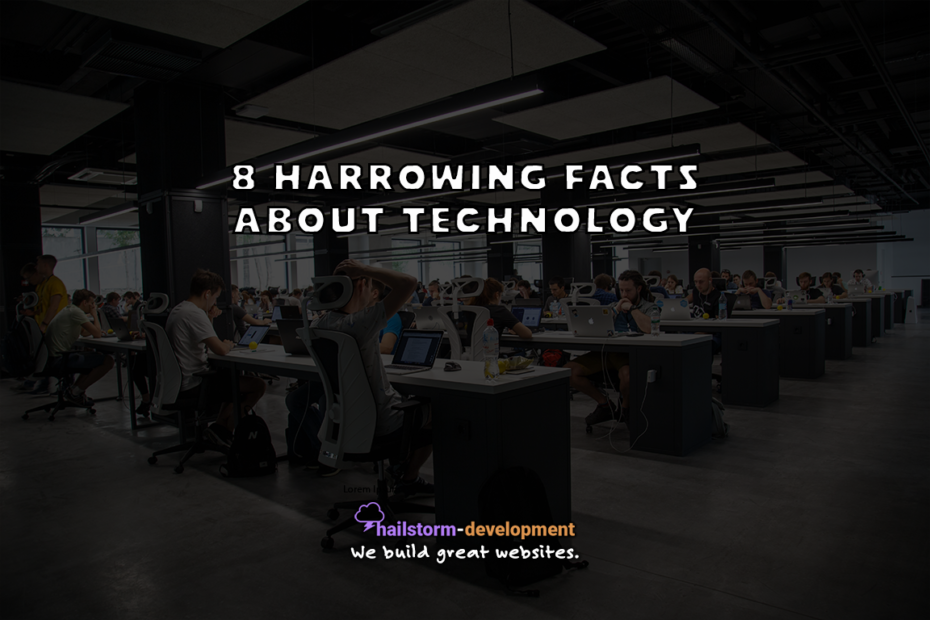8 Harrowing Facts About Technology
We’ve done some research and uncovered these 8 harrowing facts about technology. While tech helps us keep in touch with friends and family members across the world, it also has been found to cause increased stress, eye problems, and even a shorter attention span. Without further ado, let’s dive in.
Facts About Technology
While yes, it is true that technology enables us to do more than ever before, that’s not to say it doesn’t have its drawbacks. Here are some of what we thought were stressful facts about tech:
Surprisingly, our bodies were not designed to sit at a computer all day. Thus, office jobs and positions in laboratory environments may mean you’re spending a lot more time on your tuchus than your toes.
Has your neck ever hurt after a long day of work? Well, texting and typing on a computer don’t necessarily promote great ergonomics. When designing your home office, try to keep that in mind to minimize pain and frustration.
So, by now, you’re probably aware that the notification, “ding,” on your phone when you get a message can be distracting. Combine this with application notifications, calls, and emails, and you’ve got a recipe for one neverending distraction!
With instant answer services like Google, technology promotes a shorter attention span. Social media, videos, and advertisements add to the problem as we surf the web.
Though it sounds like a joke, technology addiction, also referred to as internet use disorder or internet gaming disorder, is similar to other addictions such as alcohol. When an individual spends more time online and it begins to interfere with their lives, they may be at risk or suffering from this strange phenomenon.
Similar to its predecessors, constantly being connected to technology adds another layer of stress. If you’re reaching for your phone first thing when you wake up, and it’s the last thing you touch before you go to bed, there’s a likelihood that it may be affecting your sleep and overall well being.
For individuals with social anxiety, they may find relief in being able to communicate with other people via voice chat, text posts/messages, and video, instead of in “real-life.” However, the longer they maintain digital, not physical, social relationships, the greater chance they will experience anxiety or stress in public social situations.
To say nothing of the fact technology causes us to produce more pollution and use more energy would be egregious. While you save paper by using email, keeping your computer running all day, every day, can lead to a high energy bill. Ultimately, when these gadgets and tech devices are no longer used, they’re thrown away, creating more electronic waste.
In the same way technology can cause neck and posture problems, it can also lead to eye and ear problems. Staring at a screen all day can lead to eye strain, fatigue, and more. Further, wearing headphones, earbuds, or listening to music too loudly can damage your hearing.
In Conclusion
Lorem ipsum dolor sit amet, consectetur adipiscing elit. Ut elit tellus, luctus nec ullamcorper mattis, pulvinar dapibus leo.
Resources & Further Reading
Anderson, J., & Rainie, L. (2019, December 31). Concerns about the future of people’s well-being and digital life. Pew Research Center: Internet, Science & Tech. https://www.pewresearch.org/internet/2018/04/17/concerns-about-the-future-of-peoples-well-being/.
Bronzan, F. (2019, October 8). The 19 Negative Effects of Technology in 2019: Digital Detox. Digital Detox®. https://www.digitaldetox.com/blog/the-19-negative-effects-of-technology-in-2019.
Johnson, J. (2020, February 25). Negative effects of technology: Psychological, social, and health. Medical News Today. https://www.medicalnewstoday.com/articles/negative-effects-of-technology.
